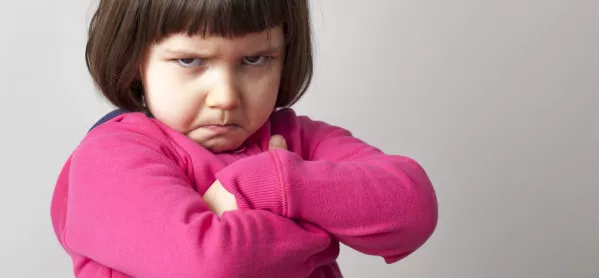The idea that “liking kids” is a requirement to work in early years education is all-pervasive: say you work in EYFS and people usually reply “you must really like kids”.
Such an attitude is well-meaning but romantic nonsense. And though it is at first glance harmless, look closer and you find it contributes to a huge taboo in our field, one that is doing us, the children and their families no favours at all: that we aren’t going to immediately dislike a pupil and will instead deeply cherish every child who comes into our setting.
There, I said it.
Quick read: The importance of helicopter stories
Quick listen: What do we mean by ‘school ready’?
Want more articles like this? Join our Tes Teaching and Learning Facebook group
Avoiding being honest about this can negatively affect us in our role as teachers. Positive relationships - whether with someone aged 3 or 53 years old - require honesty. The notion that early years practitioners have a supernatural reservoir of love and patience for all young children is rose-tinted and dishonest.
Trying to conform to this idea can leave some teachers feeling inadequate if they do not feel this way, which can affect their confidence and passion for the job. Also, it means that when an EYFS teacher’s patience inevitably reaches its limit, the reaction is much bigger than it should be and they get needlessly harsh with the children.
Realistic ambition
I am not arguing that we should negate our professional responsibility to develop positive relationships with each and every child who comes through our doors. Rather, for me it means settings being open to necessary conversations.
Some examples of conversations with colleagues might be:
-
“I did not know how to handle so-and-so hitting children today. He was doing my head in, honestly. Do you think next time he gets going like that, one of you can be with the other children while I get him involved in something physical and engaging? Or do you have any other ideas?”
-
“I didn’t sleep well last night, and don’t want to take it out on the children. Do you mind if I sit with the children who want to hear stories more today?”
-
“So-and-so got so upset when I moved him away from the others, he couldn’t stop hitting. It was hard to deal with! I am glad it’s Friday!”
Sometimes it even means telling - not yelling at - a child: “I am beginning to lose my patience and get angry about X. I need to step away for a bit and let [my co-worker] help here.”
Early years issues
Young children do need as much patience and understanding as possible. But pretending we have an inhuman reserve of patience and understanding is not the best way to give them what they need. Instead, we need an honest reckoning of our personal triggers and to be given the personal space needed to reflect on situations we probably could have handled better.
Trying to maintain the idea that our days are supposed to be non-stop sunshine and lollipops simply is not helpful.
The writer is a teacher in a pre-school setting in the Midlands




